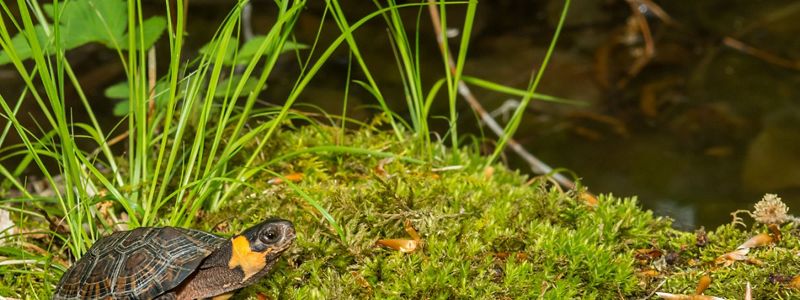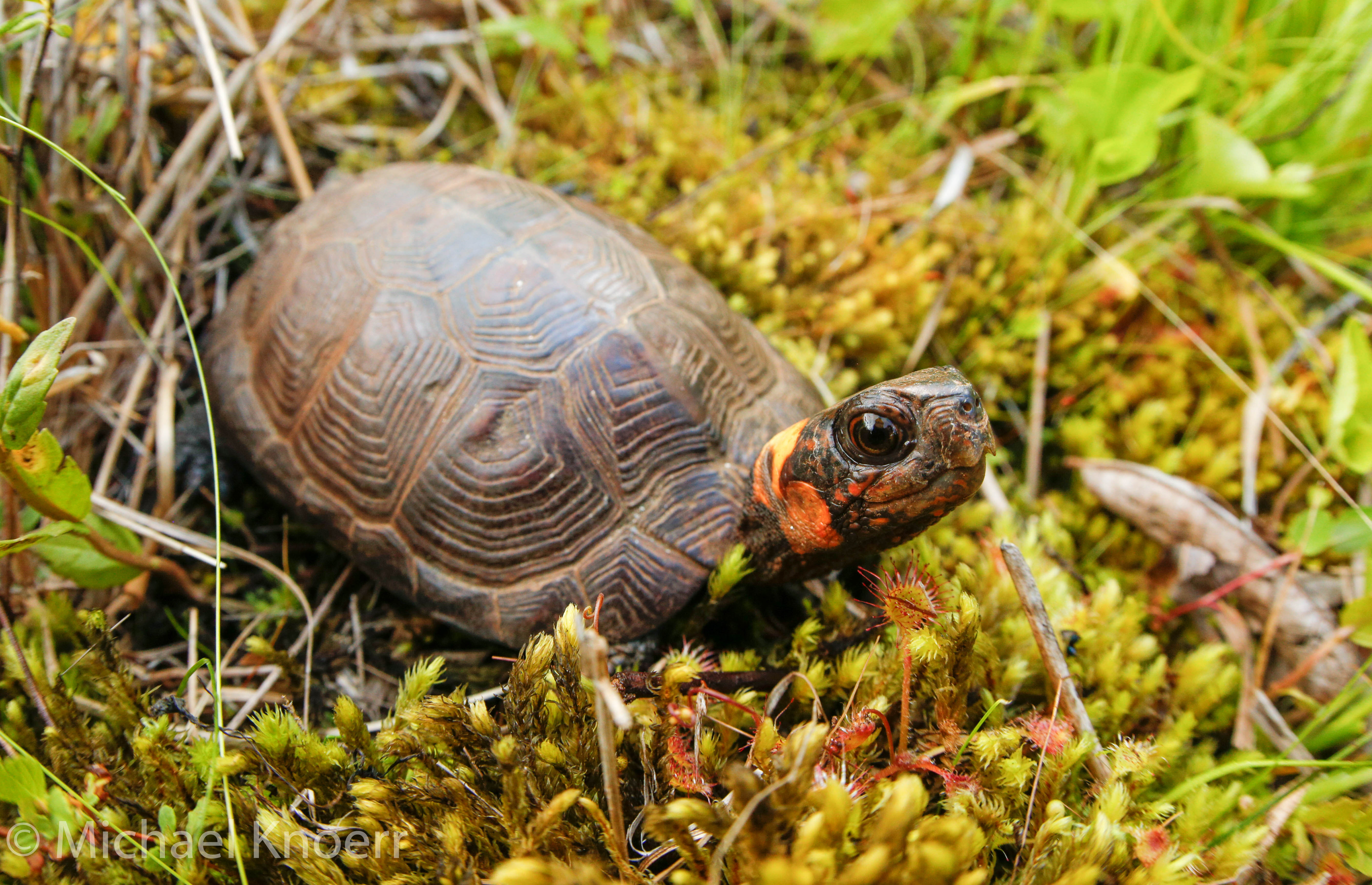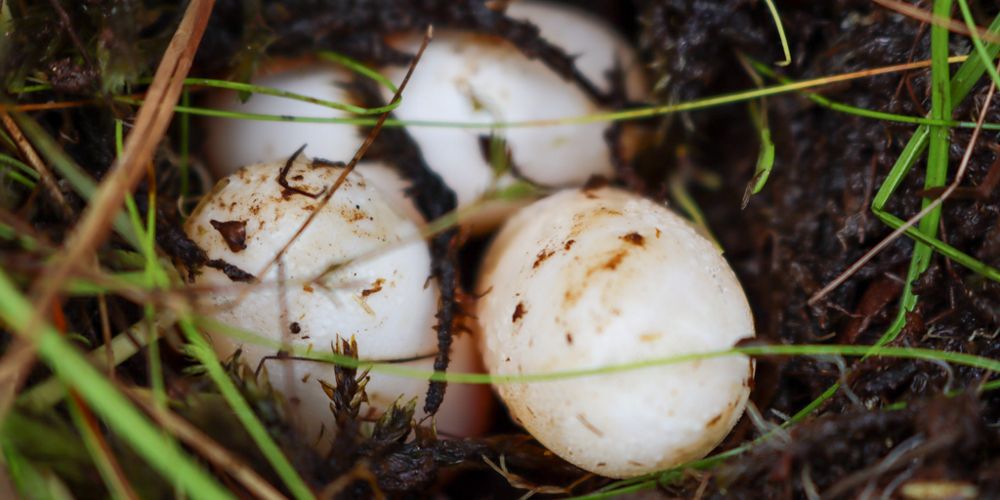Acopian Preserve Restoration
A patchwork of farms, streams and forest harbor populations of North America's smallest turtle.
Acopian Preserve
The Nature Conservancy's Acopian Preserve is the ideal habitat for one of the state’s most important populations of federally endangered bog turtles.
In southeastern Pennsylvania, small, spring-fed mountain streams trickle down into the sandstone valley below. In scattered areas across the valley, the water collects to form soft, muddy wet meadows that contain clumps of grassy tussock sedges and other low-lying vegetation. This combination of natural elements, located at The Nature Conservancy's Acopian Preserve, is the ideal habitat for one of the state’s most important populations of federally endangered bog turtle.
The Acopian Preserve is not open to the public due to the fragile nature of the habitat. However, interested conservationists may view the preserve during a volunteer workday.
Studies conducted at the Acopian Preserve have revealed the existence of a 62-year-old bog turtle, and several other turtles that are 50+ years old. These are the oldest bog turtles known to exist in the wild.
Prior to becoming a TNC preserve, this patchwork of lands garnered interest from scientists when farming practices began to replace traditional grazing that once supressed trees and other vegetation that provided ideal conditions for bog turtles. In response, TNC acquired the property in 1989 and secured a conservation easement on 1.2 acres in 2000.
Over the years, TNC has implemented prescribed burns, cleared trees, returned grazing to the landscape with cattle and goats, and conducted annual surveys and a radio telemetry study that documented bog turtle locations, hibernation, travel patterns and habitat use within the preserve. Turtles residing in the preserve have been tagged with small, computerized chips to help with tracking, monitoring and managing populations throughout their life cycle.
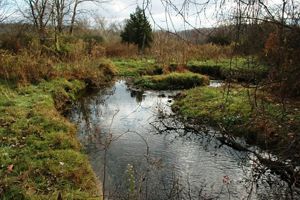
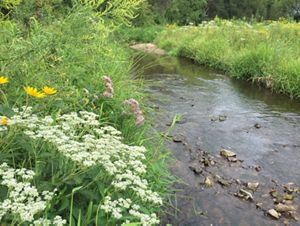
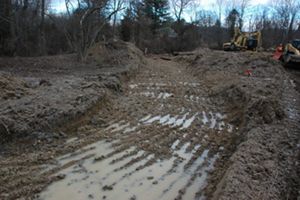
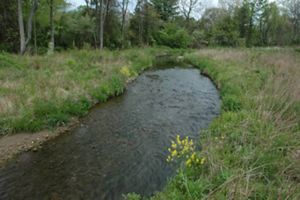
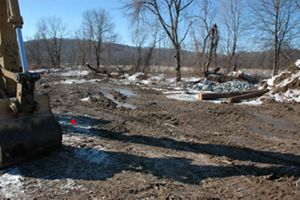
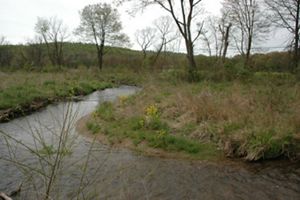
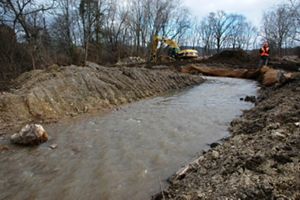
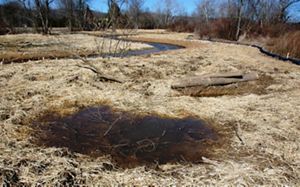
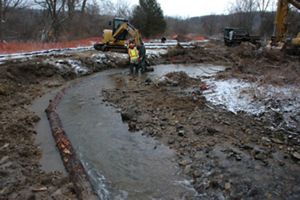
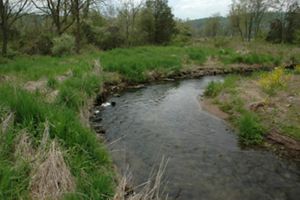

Stream Restoration: Before : Conditions before the Acopian stream restoration project. The original channel was degraded and eroding. © George C. Gress / TNC

Stream Restoration: After: Section of stream on PA's Acopian Preserve one year after completion of a project to restore the degraded channel and create new habitat. © Su Fanok / TNC

Acopian Restoration: A new stream was created at Acopian Preserve based on natural channel design. © George C. Gress / TNC

Healthy Stream: Three years after restoration, water flows along a section of stream built following natural channel design. © George C. Gress / TNC

Stabilizing Banks: Natural materials were used to stabilize stream banks and provide aquatic habitat. © George C. Gress

Natural Meander: A restored section of stream at Acopian Preserve meanders between restored banks and blooming wildflowers. © George C. Gress / TNC

Erosion Control: Matting was installed along the restored stream banks to minimize erosion. © George C. Gress / TNC

Creating Habitat: Seeded areas along the restored stream channel were covered with straw to enhance germination. Wet depressions provide habitat for amphibians. © George C. Gress / TNC

Stream Restoration: Natural materials were used to stabilize the banks and provide aquatic habitat. © George C. Gress / TNC

Stream Restoration: After: The restored stream at Acopian Preserve provides enhanced habitat for small fish, aquatic invertebrates and amphibians. © George C. Gress / TNC
Stay in Touch
Sign up to receive monthly email conservation news & updates from Pennsylvania.
